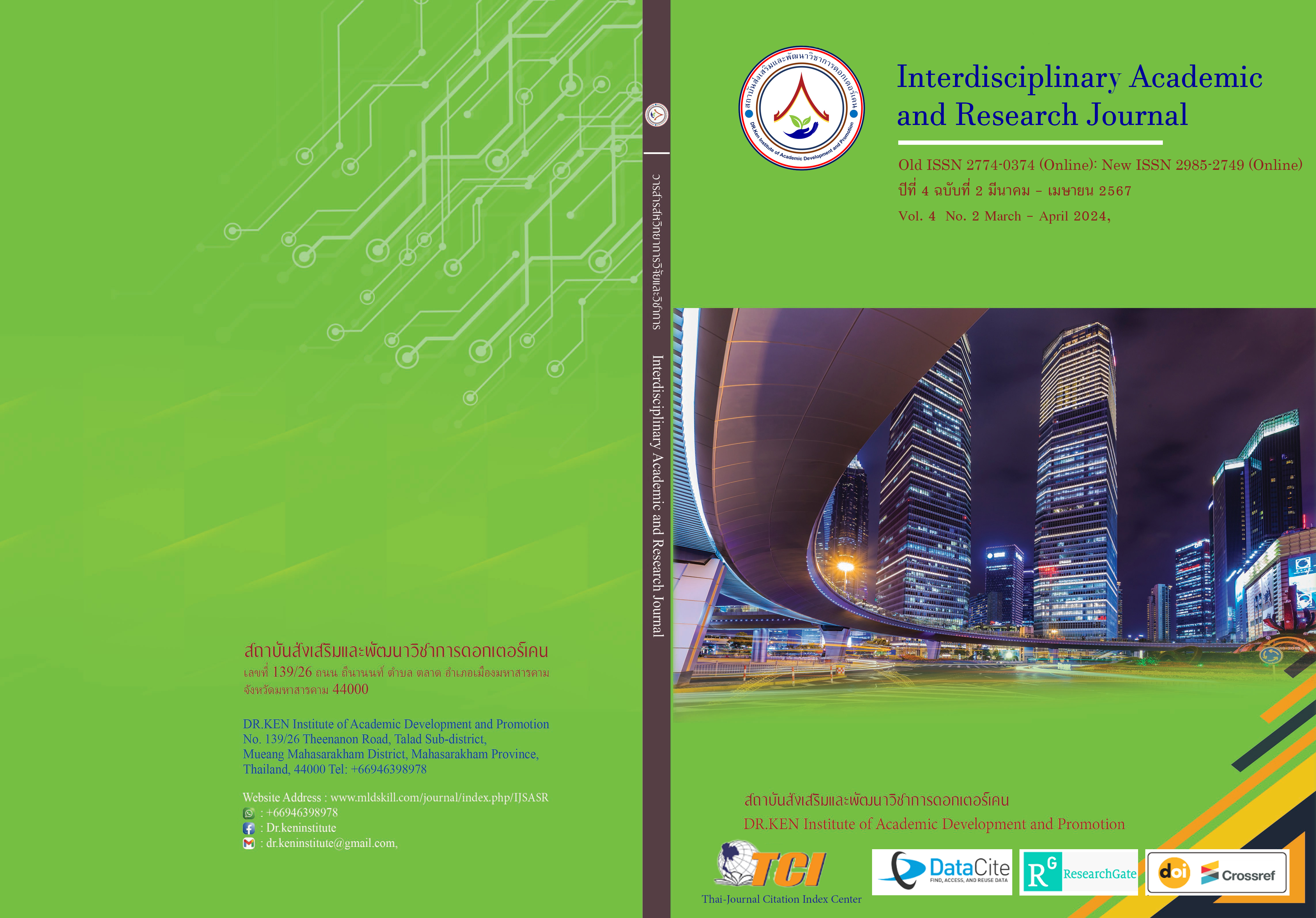Life in Cycle of Cambodian Labor in Thailand
DOI:
https://doi.org/10.60027/iarj.2024.274509Keywords:
Cambodian Labor; , Social CapitalAbstract
Background and Aims: Cambodian workers will likely stay in Thailand longer, which will affect welfare provision and improve the quality of life of legal workers. Personal information of Cambodian workers will gradually be entered into the database of the Department of Provincial Administration. Ministry of Interior Make Cambodian workers a part of those who will receive the results of labor policies. Thai social welfare may lead to financial and other policies and can be again in the future. Thus, the objectives of this research are (1) to study the lifestyle of Cambodian foreign workers in Thailand and (2) to analyze the life cycle of Cambodian foreign workers.
Methodology: The research methodology is by qualitative approach, using observation and informal interviews, in-depth interviews, and focus groups. The key informants are 4 Cambodian workers and 1 Thai community manager. The data is collected through interview questions, meanwhile analyzing the results of the interviews and observations are according to theoretical concepts to create conclusions.
Results: (1) present an overview of the work, income, spending behaviors, and social care system of Cambodian workers in both Cambodia and Thailand (2) analyze the life cycle of Cambodian workers caused by heavy debt which forced workers to extend their stay in Thailand. The consequences depend on the debt burden, which is calculated per capita according to the cost of work permit documents, the amount of money that must be sent back to support the family in Cambodia while working in Thailand and saving goals for each family. It can be concluded that the behavior of living for a longer period working as a foreign worker is therefore part of the need for Thailand to adjust the labor’s management system.
Conclusion: The findings highlight the importance of understanding various aspects of the lives of Cambodian workers Covers the dynamics of work financial behavior and social support systems both in Cambodia and Thailand. The analysis also highlights the important influence of heavy debt on the life cycles of these workers. Encourage them to stay in Thailand longer. and emphasizes the need to adapt Thailand's labor management system to deal with these complexities.
References
กรมอุตสาหกรรมพื้นฐานและการเหมืองแร่. (2559). ระบบคมนาคมขนส่งและโลจิสติกส์: ราชอาณาจักรกัมพูชา. Retrieved on 30 Nov. 2023 from: https://efaidnbmnnnibpcajpcglclefindmkaj/http://aec.dpim.go.th/mineraldata/document/Chapter/INV59-Cambodia_Chapter7.pdf.
กองเศรษฐกิจการแรงงาน. (2566). รายงานผลการวิเคราะห์ข้อมูลอุปสงค์และอุปทานแรงงานระดับประเทศ ปี 2566. กรุงเทพฯ: กองเศรษฐกิจการแรงงาน กระทรวงแรงงาน.
สำนักข่าวกรองแห่งชาติ. (2566). กัมพูชา. Retrieved on 30 Nov. 2023 from: https://almanac.nia.go.th/world/almanacpage/1/.
สุภางค์ จันทวานิช. (2551). ทฤษฎีสังคมวิทยา. กรุงเทพฯ: สำนักพิมพ์แห่งจุฬาลงกรณ์มหาวิทยาลัย.
Goeteborgs Stad. (2019). Interesting information about Sweden - an easy-to-read Swedish social learning guide. Retrieved on 1 Dec. 2023 from: https://efaidnbmnnnibpcajpcglclefindmkaj/https://www.thaiwise.se/wp-content/uploads/2019/10/สาระน่ารู้เกี่ยวกับสวีเดน.pdf.
Downloads
Published
How to Cite
Issue
Section
License
Copyright (c) 2024 Interdisciplinary Academic and Research Journal

This work is licensed under a Creative Commons Attribution-NonCommercial-NoDerivatives 4.0 International License.
Copyright on any article in the Interdisciplinary Academic and Research Journal is retained by the author(s) under the under the Creative Commons Attribution-NonCommercial-NoDerivatives 4.0 International License. Permission to use text, content, images, etc. of publication. Any user to read, download, copy, distribute, print, search, or link to the full texts of articles, crawl them for indexing, pass them as data to software, or use them for any other lawful purpose. But do not use it for commercial use or with the intent to benefit any business.
















.png)


